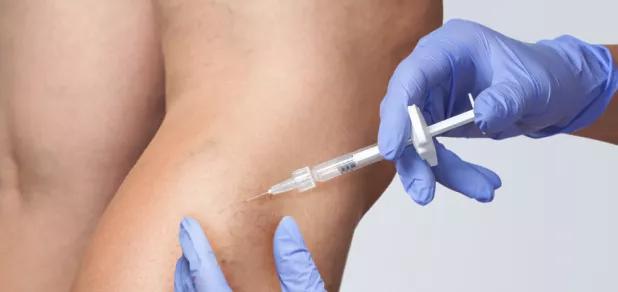Lupus is an autoimmune disease wherein, your immune system goes haywire and attacks your body’s healthy tissues and organs. Lupus-related inflammation can impact a variety of bodily functions, including your joints, skin, kidneys, blood cells, brain, heart and lungs. Some people are vulnerable to lupus from birth, which can be triggered by medication, sunlight, or even infection. Lupus has no known cure, but our best Rheumatologist in Bangalore can suggest treatments that can help manage symptoms.
What is systemic lupus erythematosus?
Lupus is a disorder of the immune system. When people say "lupus", they mean systemic lupus erythematosus (SLE). Normally, your immune system defends your body against infection. In the case of lupus, your immune system attacks your healthy tissues, causing damage to the tissue. This autoimmune disease mistakes parts of your body, like your joints or skin, as foreign objects. Antibody-like proteins are released by the body that attacks healthy cells. It can have an impact on blood vessels, the brain, lungs, skin and joints. SLE mostly affects women, usually starting at childbearing age.
Causes of SLE:
The precise cause of SLE is not known. However, it is believed that lupus results from a combination of your genetics and your surrounding environment. People who have genetic risk factors can develop the condition if they come into contact with things that can trigger the disease. Some of the triggers for SLE include:
- Infections: For some people, an infection can trigger lupus or lead to a relapse.
- Genetic factors: Those with family members who have lupus are at an increased risk of the disease.
- Medication: Certain antibiotics, anti-seizure drugs and blood pressure medications may have the potential to cause lupus.
- Environmental Factors: Exposure to the sun, some viruses one might have been exposed to, stress or a history of smoking can trigger lupus.
- Hormonal changes: SLE mostly affects women, particularly during their reproductive age; this is probably because of hormones such as estrogen.
Symptoms of SLE:
Lupus cases vary greatly from one another. The signs and symptoms can be mild or severe, sudden or gradual in onset, transient or permanent. The course of SLE is marked by periods of active disease where symptoms will be more and periods of low disease or remission when symptoms will be quiet. The body systems affected by the disease will determine the signs and symptoms of lupus you experience. The most typical warning signs and symptoms are:
- Fever
- Fatigue
- Swelling, stiffness and pain in joints
- Rashes, typically butterfly-shaped rash on the face that covers the cheeks and bridge of the nose
- Skin lesions that develop and worsen with exposure to the sun
- Fingers and toes turn white or blue when under stress or exposed to cold
- Breathing difficulty
- Chest pain
- Dry eyes
- Migraines and confusion
- Memory loss.
Risk factors:
The following factors may increase your risk of developing SLE:
- Gender: Lupus is more prevalent in women.
- Race: Asian Americans, Americans, Africans, and Hispanics are more likely to develop lupus.
- Age: Even though lupus can affect people of any age, it is most prevalent in people between the ages of 15 and 45 years.
Treatment:
There is no cure for SLE, but early appropriate therapy can help control the symptoms and prevent organ damage. Treatment for SLE depends on the symptoms. Some of the approved treatments include:
- BLyS-specific inhibitors: These drugs limit the number of abnormal B cells in the immune system that create antibodies that cause SLE. A common type of BLyS- specific inhibitor that treats lupus symptoms hinders the action of a particular protein in the body that is important in the immune response.
- Antimalarial drugs: Drugs used to treat or prevent malaria also address joint pain, fatigue and skin rashes in SLE. Studies have shown that taking antimalarial medicines can prevent the frequency of lupus flares and enable people struggling with lupus to enjoy a longer life expectancy.
- Immunosuppressive agents/chemotherapy: These medicines are used in severe organ involvement with SLE, particularly when it affects major organs. The downside to this involves serious side effects as they reduce the body’s ability to fight infections.
- Nonsteroidal anti-inflammatory drugs (NSAIDs): Over-the-counter NSAIDs help reduce mild pain and swelling in joints and muscles.
- Corticosteroids: Corticosteroids when used for short periods may help reduce many SLE symptoms like swelling, tenderness and pain in joints. They work quickly and calm the immune system. Corticosteroids, also called ‘steroids’, are available in the form of pills, shots or creams.
FAQs:
1. Which organ is most commonly involved in SLE?
The most commonly involved organ in SLE is the kidney.
2. What is the most common complication of SLE?
Pregnancy complications, heart attacks, stroke, and kidney failure are the most common complications of SLE.
3. Which test is the most sensitive for SLE?
The most sensitive test for SLE is the antinuclear antibody test.
4. How does SLE affect the brain?
If your brain is affected by SLE, you may experience a stroke, seizures, vision problems, behaviour changes, dizziness and headaches.
5. What should lupus patients avoid?
There are several things lupus patients should avoid; some of them include cigarette smoking, Echinacea, alfalfa sprouts, direct sunlight, hormonal contraceptive pills.







